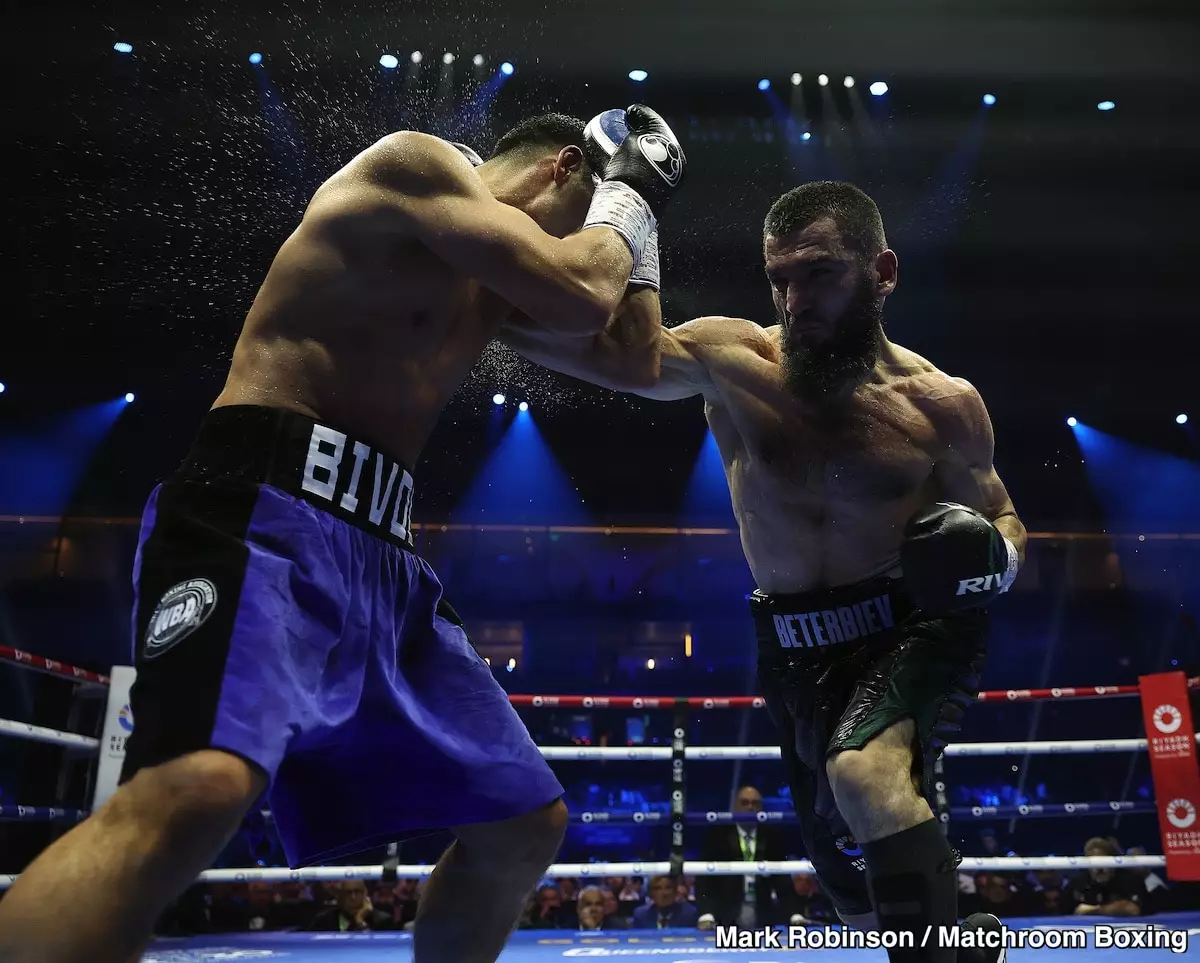Dmitry Bivol’s recent loss to Artur Beterbiev has become a topic of crucial analysis within boxing circles, particularly following Bivol’s candid remarks regarding the impact of Beterbiev’s powerful punches. The implications of Bivol’s statements extend beyond mere post-fight reflection, opening a dialogue about fighter psychology, strategic communication, and the intricacies of preparing for high-stakes rematches.
One of the hallmarks of a successful fighter is the ability to maintain an air of mystery about their weaknesses. Former two-division world champion Andre Ward has publicly asserted that Bivol’s admissions regarding the effects of Beterbiev’s punches could potentially undermine his strategy for a forthcoming rematch in 2025. Ward’s perspective emphasizes the psychological warfare inherent in boxing; a fighter’s words can inadvertently offer their opponent insights into vulnerabilities. By discussing the physical toll of Beterbiev’s punches, Bivol risks revealing strategic elements that his opponent could exploit in a potential second encounter.
While fighters are often encouraged to be transparent and honest, particularly in the face of challenges, the ring operates under different norms. Silence, in this context, could lend Bivol a tactical advantage, allowing him to plan and execute strategies without inadvertently guiding his opponent’s game plan.
Analyzing their recent bout at Kingdom Arena in Riyadh reveals a highly competitive match. Despite suffering a majority decision loss, Bivol’s performance was characterized by solid defensive maneuvers and technical skills, at least in the early rounds. Many fans perceived that Bivol had done enough to secure a victory, citing his ability to outmaneuver and tactically outbox Beterbiev at times. However, as the fight progressed, the mounting pressure from Beterbiev, interspersed with accurate and hard-hitting punches, began to dilute Bivol’s effectiveness, leading to a decline in energy and initiative.
Bivol’s strategy of primarily blocking punches—while effective in minimizing damage early on—proved insufficient in stopping the impact of Beterbiev’s aggressive style. As the fight wore on, the cumulative effect of body punches and relentless pressure began to manifest, raising questions about Bivol’s stamina and adaptive strategies in response to Beterbiev’s power.
Looking ahead to a potential rematch, analysts, including Bivol’s trainer, Stephen Edwards, suggest a need for a more aggressive tactical approach. Bivol must learn from his previous experience; adopting a more proactive stance could be essential for success against Beterbiev. Edwards points out that during the seventh round, Bivol showcased moments of brilliance when he unleashed a flurry of punches. However, a lapse in caution allowed Beterbiev to capitalize, altering the fight’s momentum.
This tug-of-war between aggression and caution represents a critical dilemma for Bivol. Adopting a more aggressive style risks leaving him vulnerable to counterattacks from a fighter known for his knockout power. The objective is to strike a balance—Bivol must find ways to press his advantage without falling prey to Beterbiev’s counter-punching abilities.
Bivol’s acknowledgment of Beterbiev’s strength presents both an opportunity and a challenge. While it is essential for Bivol to understand and respect the power that Beterbiev brings to the ring, overt admissions can serve as a double-edged sword. Fighters are often judged not just by their physical capabilities but also by their mental fortitude and psychological resilience. If Bivol can reframe his narrative—downplaying his perceived weaknesses while focusing on improvements—he might shift the psychological momentum in his favor.
The dynamics of boxing extend beyond mere physical confrontation; they encapsulate a complex interplay of strategy, psychological insight, and adaptability. As Bivol prepares for the possibility of a rematch, he must navigate the fine line between recognizing his vulnerable points and shrouding them in tactical ambiguity, all while refining his approach to confront a formidable opponent like Beterbiev.
Dmitry Bivol’s recent defeat has prompted significant reflection not just on his technical execution in the ring but on the broader implications of fighter communications. The value of strategic silence has never been more evident, and as Bivol gears up for a potential rematch, he must delve deeply into both his fighting technique and how he presents himself to the boxing community. Adversity in the ring offers a unique opportunity for growth, and with careful preparation, Bivol can harness the lessons learned from past challenges to forge a new path towards success. As the boxing community eagerly anticipates the next chapter in this rivalry, the focus will be on whether Bivol can adapt and emerge stronger.

